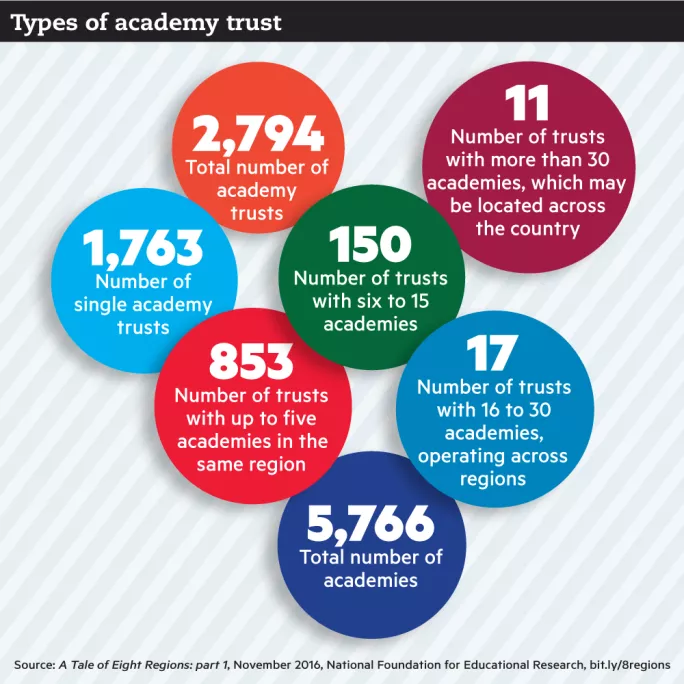Sir David warns against selection within MATs

A key plank of ministers’ plans to expand academic selection could limit parental choice and “get in the way” of helping bright pupils, the government’s own national schools commissioner has warned.
Sir David Carter is concerned about the grammar school Green Paper proposal to “encourage multi-academy trusts to select within their trust” and “establish a single centre in which to educate their most able pupils”.
The Department for Education commissioner, who oversees the academy system, used a TES interview to warn that there were two “challenges” for introducing academic selection within MATs.
“There’s one challenge around parental choice,” Sir David said. “So if you were to demarcate one of your schools as being the centre of excellence, and my child for whatever reason could not get a place in the centre of excellence, the school I have chosen becomes the school I can’t go to any more.”
‘Centres of excellence’
The second challenge he identified involved supporting the most-able pupils. “I think the best multi-academy trusts I work with have a really secure model for how they develop their able children,” he said. “Actually changing the structure of how education is delivered in a MAT might get in the way of that.”
His comments come in the week that the consultation over the controversial plans to increase the number of grammar schools closed. And they are likely to be viewed as a significant blow to the credibility of a key part of the scheme.

“Centres of excellence” within MATs are already legal, according to the DfE. Encouraging them may have allowed ministers to increase academic selection without having to rely on pushing through new grammar school legislation in the face of widespread parliamentary opposition.
But the NUT teaching union has already threatened to take the government to court over the proposal for MATs to set up such centres.
Kevin Courtney, NUT general secretary, says in a letter to education secretary Justine Greening: “I am advised that selection within academy trusts in the manner described in the Green Paper - whether it is read as referring to admission to a specific school within the trust or to a ‘centre of excellence’ which is not itself a school - is not lawful.”
Sir David suggested that there was also reluctance within MATs to proceed with the idea. He said that while some academy trusts might be interested in introducing selection, he had “heard more concrete examples of people saying ‘I’m not sure that is something we would want to do’ ”.
MATs are saying: ‘I’m not sure that is something we would want to do’
Russell Hobby, general secretary of the NAHT headteachers’ union, echoed the concerns voiced by Sir David, and said that he had not seen any appetite from trusts to get involved in selection.
“Any selection in MATs is no better than selection inside a local authority, or in the nation as a whole,” he added. “As David has been pointing out, a MAT has the capacity to support more gifted and able students in the school they are in, and has the expertise across the whole trust while getting the benefits of a comprehensive education.”
He added that selection within a MAT would limit the choice of parents, who were likely to consider the individual school, rather than the trust that ran it, when applying for a place.
Free-school grammars
Sir David said that if the new grammar school policy did go ahead it would be “logical” for his eight regional schools commissioners (RSCs) - who oversee academies and approve new free schools - to play a key role in creating the schools.
“If there are new grammar schools, my guess is it will be through the free schools policy - that’s the mechanism for approving new schools at the moment,” he added.
The RSCs could also be involved in assessing applications from existing academies to become selective, through their duty to approve “significant changes” to the schools, he said.
You need a Tes subscription to read this article
Subscribe now to read this article and get other subscriber-only content:
- Unlimited access to all Tes magazine content
- Exclusive subscriber-only stories
- Award-winning email newsletters
Already a subscriber? Log in
You need a subscription to read this article
Subscribe now to read this article and get other subscriber-only content, including:
- Unlimited access to all Tes magazine content
- Exclusive subscriber-only stories
- Award-winning email newsletters